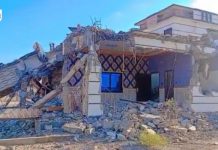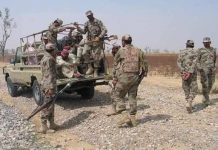After a long time I have finally mustered some courage to write about something which was long due. Being a Baluch journalist, it is extremely hard to report freely from Baluchistan. International media organisations and journalist rights groups think that there are several factors in Baluchistan which are responsible for oppression on Baluchistan’s journalist community. But for me there are just two main factors that are responsible for every issue in the region. In this piece of writing I will discuss both and try to uncover real issues the journalists face in the region.
As per Reporters without Borders, more than one journalist a month in Baluchistan have been killed in connection with their work since the start of 2012. Following are the reasons of this alarming situation.
Factor one: Pakistani state and their allies which include several Islamic militant groups and political parties have made it very difficult for journalists to work freely. These groups which are fully backed by the state’s institutions ,both financially and strategically, pressurize the journalists, civil society of Pakistan and human rights organizations especially active in Baluchistan. There is a huge list of victims, targeted by state backed Islamic groups, noticeably Sabeen Mehmood and one of my colleagues Mr Munir Ahmed Shakir. Three of my other journalist friends Faraz Naseem, Javed Nasir, Abdul Razaq Baloch were also targeted by similar groups. These groups were introduced in 2011 by state to counter Baluch insurgency.
Second factor: Journalists in Baluchistan also face many problems from nationalist organisations in Baluchistan that are campaigning for ‘liberation of Baluchistan’. These organisations which include political as well as armed organisations are not happy with almost non-existent coverage of their activities. This is due to ban on journalists by Pakistani authorities to publish or air any activities of these organisations.
Baloch Students Organisation – Azad, a student organisation that supports the idea of ‘liberation of Baluchistan’, was the first such organisation to completely boycott Pakistani media and appealed all cable operators to refrain from airing any Pakistani news channels in Balochistan. After negotiations and guarantees, this boycott call was repealed by BSO-Azad.
However, these organisations failed to receive any media coverage resulting in the largest and most well-known armed organisation in the region Balochistan Liberation Front’s announcement of complete embargo on Pakistan news channels and newspapers in Baluch majority areas of Baluchistan. This ban on media is still effective to this date.
Problems local Journalist are Facing:
According to local media organizations they have strict orders from government and law enforcement agencies to not publish any statements by banned Baluch organisations. If these orders are ignored they are ‘taught a lesson of obedience’ by militant groups supported by the government. On the other hand, following these orders displeases the nationalist organisations. In these circumstances it has become extremely hard for journalists to abide by the impartial journalistic values and you need to be an iron nerved to choose journalism as a profession in Baluchistan.
Who is the victim?
In Baluchistan we need to be more specific to get to the roots of this very serious issue.
If we analyze the number of journalists killed in last few years, we find all of these journalists were Baluch, who were all affiliated with non-corporate media.
These journalists mostly covered local news regarding illegal abductions by state forces and the protests held against these abductions. In my point of view this is less like a media controlling strategy but more like a human rights crisis.
This has been further worsened due to complete absence of International media in the region. No news getting out of Baluchistan has provided impunity to these groups to freely target journalists. It is high time International media plays their role and sends fact finding teams to the region.
Abdullah Baluch is a freelance journalist based in Balochistan
Disclaimer: The views and opinions expressed in this article are those of the author and do not necessarily reflect the official policy or position of The Balochistan Post or any of its editors.






























